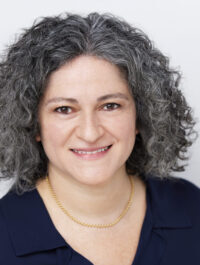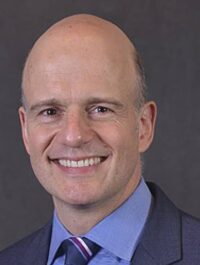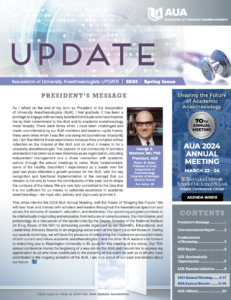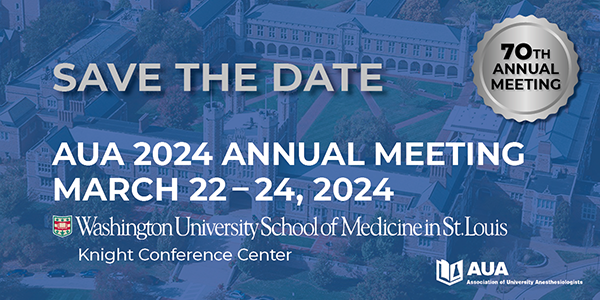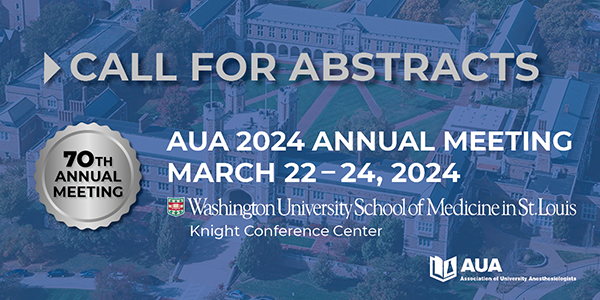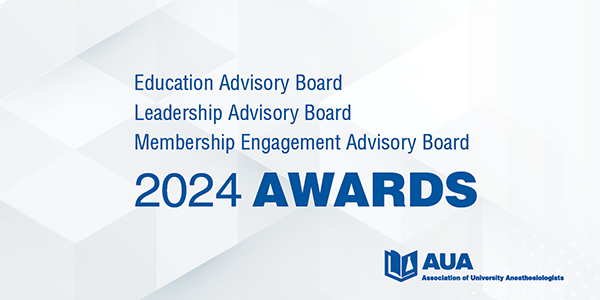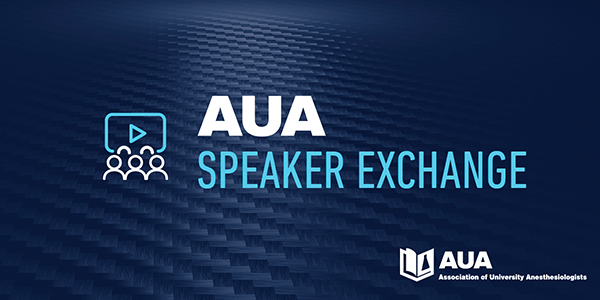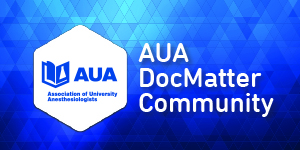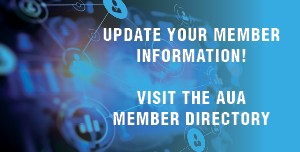Learning from Setbacks: A New Series
The career development of academic anesthesiologists requires a lifelong commitment to acquiring new skills, improving problem-solving abilities, and pursuing professionalism. Eager for growth and validation, physicians frequently invest in professional development activities to build these skill sets. However, most of our learning in the workplace, through transmission of knowledge or creation of new knowledge, occurs on-the-job and through trial and error. The learning can be either intentional or incidental and can result in explicit or implicit knowledge.1,2 In addition, dealing with defeat and failure is essential to developing our self-awareness, our humility, and our ability to learn from our own doings.3
Learning in the workplace can be described in three forms: formal, non-formal and informal.4,5 Formal learning consists of structured and planned activities with a set curriculum, and the aim of acquiring explicit knowledge. Non-formal learning refers mostly to voluntary, short-term, learner-driven activities, such as participating in conferences and workshops. Informal learning is considered to be the most prevalent form of adult learning at work or in life, yet it is the least likely form of learning to be recognized by the learner.4 Informal learning is “unstructured” and “unplanned” 4; it is not dependent on the organizational curriculum,5 but rather driven by the “trials and errors” of on-the-job experiences.6 We are often unaware of this type of learning, it is “taken for granted or tacit.”7 It is through critical reflection on the experience that we can process the learning and share the acquired knowledge with others. Even when the tacit knowledge is inaccessible and difficult to share, it provides the building blocks of our mental models, how we perceive and interpret the world. It also manifests as the “accumulated” knowledge of past experiences, influencing performance in different situations.8 This knowledge, built through years of experiences, and polished by critical reflection, is what differentiates between experts and novices. The flow of knowledge is facilitated by social interactions, teamwork, feedback, and the sharing of stories and experiences. It is through reflection that we externalize the knowledge. Critical reflection is triggered by the “mental uneasiness” resulting from a stimulus that challenges previously held beliefs and implies the “somewhat painful” process of “suspending judgment during further inquiry.”9 In contrast to belief, the “essentials of thinking” are “to maintain the state of doubt and to carry on systematic and protracted inquiry.”9 Reflection is viewed as an intentional, personal choice and a “critical skill in self-development.”10,11 Individuals may be at different readiness stages for engaging and learning from reflection.11 Furthermore, engaging in meaningful reflection can be “accelerated by appropriate support” from others and from the organization.11 It is suggested that support given to learners for reflection can be delivered through formal mentoring relationships, peer support, or professional networks.11 For example, learning in the organization can be promoted by communities of practitioners who engage in “co‑reflective practice” to learn from their collective experiences and to affirm their identities.12,13
Setbacks are inevitable on a career path in academic medicine. These setbacks manifest in different ways: rejected manuscripts, unfunded research, inability to achieve promotions, frustrating interpersonal interactions, or clinical mishaps. To effectively rebound and ultimately benefit from professional setbacks requires resilience, a commitment to life-long learning and a supportive network. We suggest the following ABCD for managing professional setbacks at the individual level:
Allowing for setbacks – into every professional career a little rain must fall. None of us are immune to setbacks.
Building support – by recognizing your own strengths and by participating in communities that validate your abilities and acknowledge the setbacks.
Creating a distance between ourselves and the setback – a setback is not a judgment on your identity and your person, but a contextual critique of the specific work.
Defining our identities and dignity – your work is not your identity. You are much more than your professional achievements. You are human first and professional second.
This new series, “Learning from Setbacks”, is designed to bridge the gap between experienced setbacks and the learning that ensues. It aims to support the professional development of our members through the lens of others and their experiences. Each issue will feature a personal story of setbacks and the resulting learning from an AUA member. The featured piece by Dr. Lisa Q. Rong elegantly and courageously brings those elements to the forefront. We hope this forum provides the necessary validation, the community of practice, and the insights for gaining knowledge to build a rewarding and successful academic career.
Acknowledgement: We thank Dr. George Mashour, as president of the AUA, for his enthusiastic support of this initiative. The idea for this series was presented by Dr. G. Burkhard Mackensen and adopted by the members of the Leadership Advisory Board.
Disclaimer: This article is based in part on previously published work by one of the authors.14
References
- Nonaka I: A Dynamic Theory of Organizational Knowledge Creation. Organization Science 1994; 5: 14-37
- Eraut M: Non-formal learning and tacit knowledge in professional work. British Journal of Educational Psychology 2000; 70: 113-136
- Chestnut DH: On the Road to Professionalism. Anesthesiology 2017; 126: 780-786
- Merriam SB, Caffarella RS, Baumgartner L: Learning in adulthood : a comprehensive guide, 3rd edition. San Francisco, Jossey-Bass, 2007
- Schugurensky D: The forms of informal learning: Towards a conceptualization of the field. 2000
- Marsick VJ, Volpe M: The Nature and Need for Informal Learning. Advances in Developing Human Resources 1999; 1: 1-9
- Marsick VJ, Watkins KE: Informal and incidental learning. New directions for adult and continuing education 2001; 2001: 25-34
- Eraut M: Learning from other people in the workplace. Oxford review of education 2007; 33: 403-422
- Dewey J: How we think. Urbana, Illinois, Project Gutenberg, 2011
- Nesbit PL: The Role of Self-Reflection, Emotional Management of Feedback, and Self-Regulation Processes in Self-Directed Leadership Development. Human Resource Development Review 2012; 11: 203-226
- Boud D, Keogh R, Walker D: Promoting reflection in learning: A model. Reflection: Turning experience into learning 1985: 18-40
- Watkins KE, Lysø IH, deMarrais K: Evaluating executive leadership programs: A theory of change approach. Advances in Developing Human Resources 2011; 13: 208-239
- Schon DA: The reflective practitioner: How professionals think in action, Basic books, 1984
- Hastie MJ: Perceptions of leadership among women in academic medicine: a case study comparing the perspectives of full-time faculty with and without institutionally defined leadership titles, Teachers College, Columbia University, 2019
